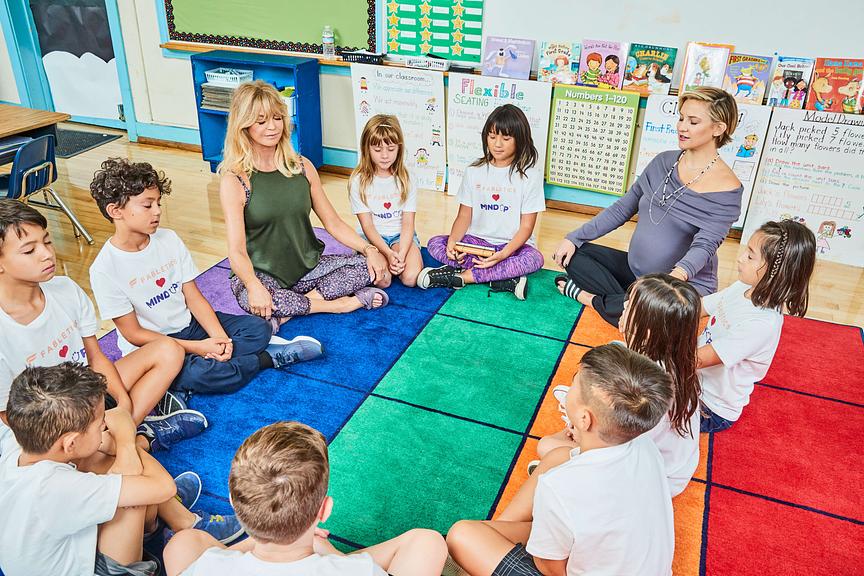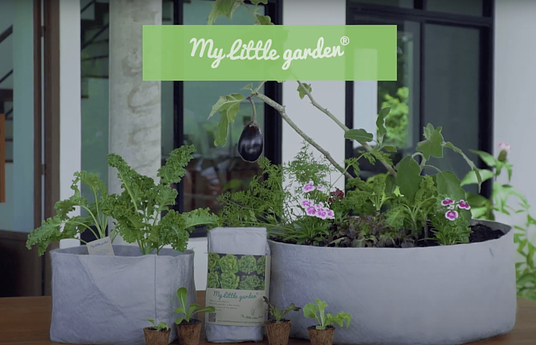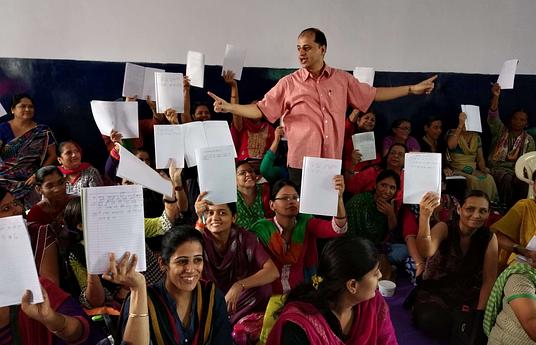Mission & Vision
MindUP™ | The Goldie Hawn Foundation is a not-for-profit organization founded to help childrendevelop the mental fitness necessary to thrive in school, work and life. MindUP was created inresponse to the global epidemic of childhood aggression, anxiety, depression and suicide. Basedfirmly in neuroscience, MindUP gives children the knowledge and tools they need to managestress, regulate emotions and face the challenges of the 21st century with resilience.
The MindUP Program
MindUP’s signature program is an acclaimed classroom-basedcurriculum, spanning ages 3 to 14. Developed by a team of expertsfocusing on four pillars: neuroscience, social-emotional learning(SEL), positive psychology and mindful awareness. The curriculumconsists of a series of lessons that work together to build a scaffoldingof awareness and skills necessary to increase prosocial behavior,executive functioning, and social and emotional competence. MindUPteaches children how to focus their attention, use brain breaks as ameans to manage stress, act with empathy, and build resilience in theface of challenge.
Research & Evidence
-
MindUP infuses developmental neuroscience, mindful awarenesspractice, social emotional learning, and positive psychology to foster children’s well-being and resiliency. - MindUP teaches children about the brain. Understanding the structure of the brain and how it functions gives children a sense of control and empowerment.
- Research has revealed that positive emotions lead to a broader scope of attention and greater motivation (Fredrickson & Branigan, 2005.)
- MindUP infuses strategies derived from the science of happiness to provide children with skills to foster well-being and happiness.
- People who can regulate their emotions are more likely to show empathy and to act prosocially towards others (Blake, Piovesan, Montinari, Warneken, & Gino, 2015; Eisenberg, Smith, Sadovsky, & Spinrad, 2004).
MindUP Outcomes
- Better stress regulation as assessed by the stress hormone, cortisol.
- Improved student outcomes: academics, attention and prosocial behavior.
- More prosocial, trustworthy, and liked by their peers.
- Enhanced tools and strategies for self-regulation.
- Increased optimism, happiness, and resilience.
de Carvalho, Pinto, & Marôco, (2017) Schonert-Reichl & Lawlor, 2010; Schonert-Reichl et al., 2015;Thierry, Bryant, Nobles, & Norris, (2016).
We are a Global Community in over 14 countries. Since2003, MindUP has impacted nearly 7 million childrenand trained approximately 175,000 teachers.
MindUP is now offering virtual training opportunities and will soon be launching MindUP 2.0 byintroducing an interactive online platform which will include training, exclusive content, and anengaging community from around the world.



